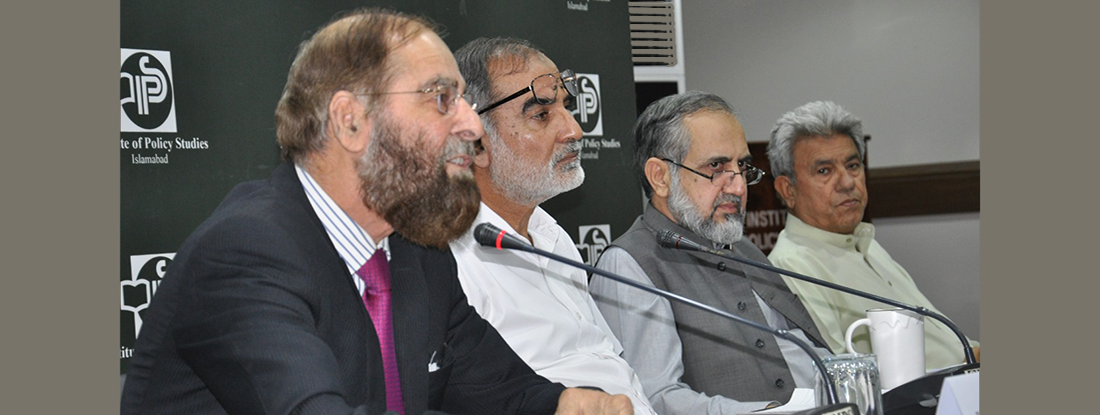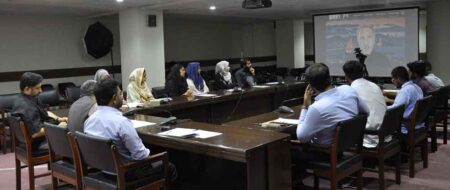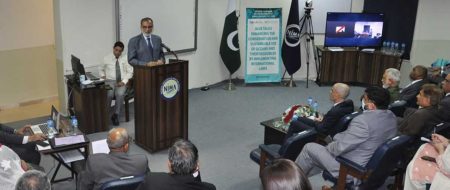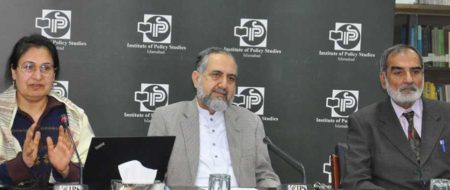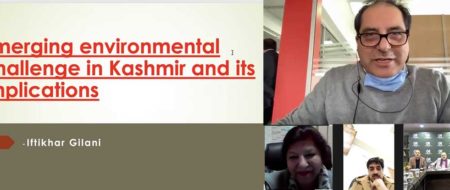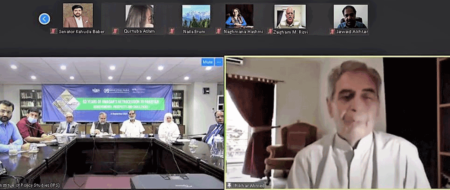‘US withdrawal from Afghanistan: Threats to regional peace, within and without’
Intra-Afghan accord before US withdrawal critical for
peace: IPS webinar
An all-inclusive Afghan-owned accord among Afghanistan’s
internal power contenders is the only solution to end the issues engulfing the
country’s people and the region. Otherwise, bloodshed will continue in the
war-torn country, which is already on the brink of a civil war, in case the US
leaves the Afghans on their own, as it had done before, without striking an
intra-Afghan agreement.
This was the crux of a webinar titled ‘US withdrawal from
Afghanistan: Threats to regional peace, within and without’ organized by the
Institute of Policy Studies (IPS), Islamabad on June 1, 2021.
Syed Abrar Hussain, IPS’ vice-chairman and Pakistan’s
former ambassador to Afghanistan, chaired the webinar, which was addressed by
Brigadier (r) Said Nazir, IPS’ senior associate and geostrategic analyst, as
the keynote speaker. Khalid Rahman, IPS’ chairman, Jumma Khan Sufi, author and
Afghan affairs expert, and Hasan Khan, senior journalist and analyst, were
among the discussants.
In his address, Said Nazir said that as the date of US
withdrawal is coming closer, violence in Afghanistan is increasing – underlining
the intense power struggle that is going on between the Taliban and the Afghan
government. He said Washington, after the pullout, would act as a mere distant
spectator of the mess it would leave behind in Afghanistan.
Commenting on the much-debated air and ground logistical
support to the US by Pakistan, he feared that if such action is taken, it would
be detrimental to peace and stability in the region and Pakistan as it will
have direct consequences for the countries that will provide assistance to the
US in this regard. As the Taliban have also cautioned regional countries
against such a move, this will further intensify the armed conflict, resulting
in the influx of Afghan refugees, he warned. Providing facilities of bases to
the US in Pakistan, he argued, will not serve national interests. Instead, it
will allow anti-state elements, including Daesh and the TTP, which are gaining
ground along the Pak-Afghan border inside Afghanistan, to label Pakistan a US
proxy.
The speaker urged regional countries, especially Pakistan,
and internal power contenders to mitigate any chances of a civil war. Pakistan
needs to beef up its efforts and precautionary measures for lasting regional
peace in the presence of spoilers, especially India, which will try to add fuel
to the ongoing fight, he warned.
Sufi was of the view that the British government is trying
to bring Pakistan and Afghanistan closer in a bid to solve bilateral issues
that have prevailed between the neighbors for a long time. He revealed that the
UK facilitated the recent meeting between the Pakistan Army chief and Afghan
President Ashraf Ghani. He stressed that Pakistan needs to press the regional
power brokers to ensure Afghanistan recognizes the existing Pak-Afghan border
for a long-term settlement.
Talking about his recent visit to Afghanistan, Hasan Khan
said that the Afghan people generally like Pakistan and did not despise it as
is often depicted in media, especially social media. Nonetheless, the Afghans
are not happy with either the Taliban or the Kabul government and think that
the US has betrayed Afghanistan once again by leaving the country in a mess the
US created itself.
Commenting on the existing situation across the border,
Khalid Rahman warned against the growing violence in Afghanistan amidst the US
withdrawal. He believed the circumstances inside Afghanistan do not augur well
for peace and rather offer a perfect recipe for a civil war. He urged all
stakeholders, especially internal power players, to reach a negotiated agreement
before US troops leave the Afghan soil for good.
Concluding the session, Abrar Hussain regretted
the blame game being played by the Afghan government against Pakistan. He was
of the view that regional countries do not want the Taliban to rule Afghanistan
alone as they fear it would bring about militancy and violence in the region.
Hence, he suggested that an intra-Afghan dialogue before the US departure is
needed for sustainable peace.


